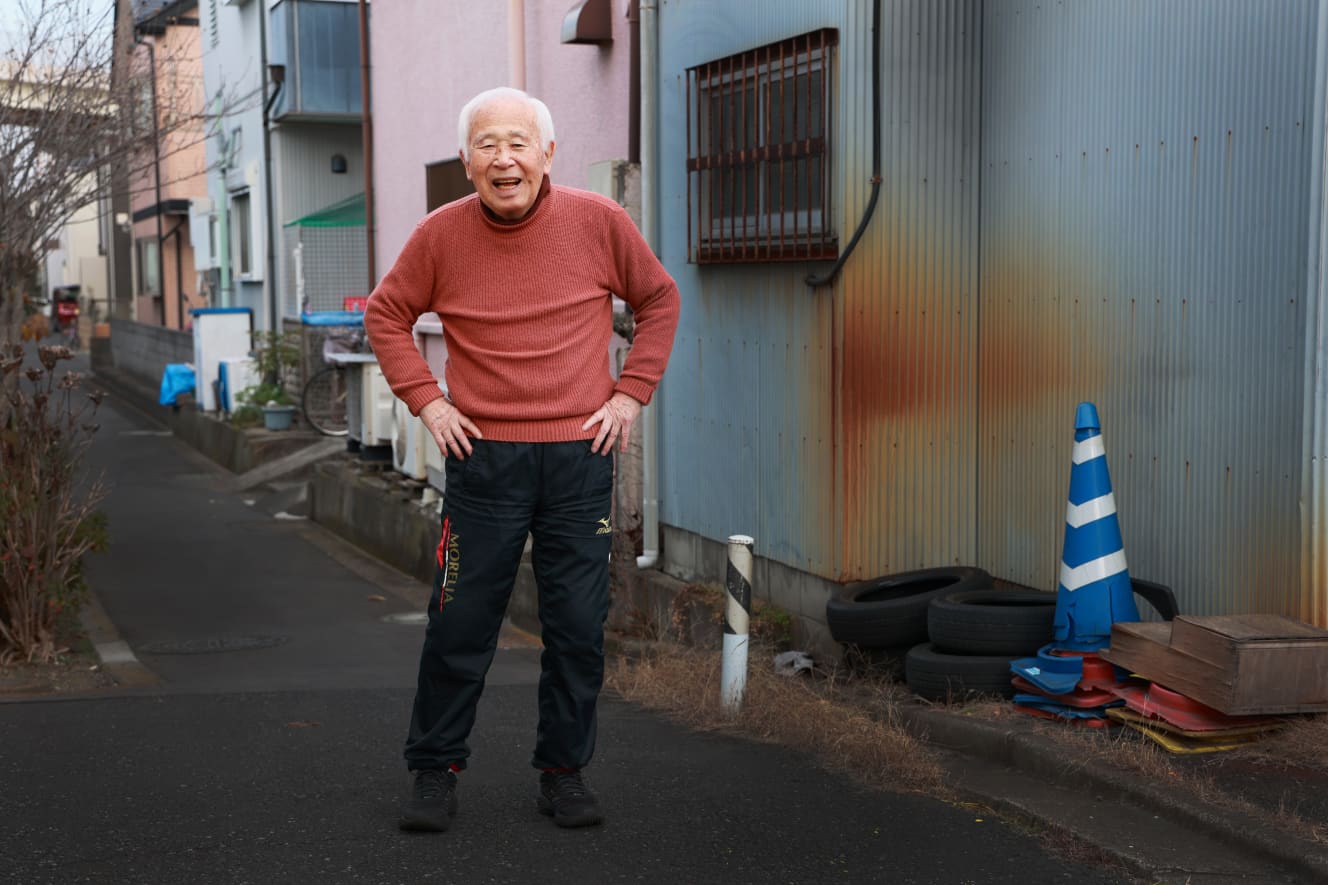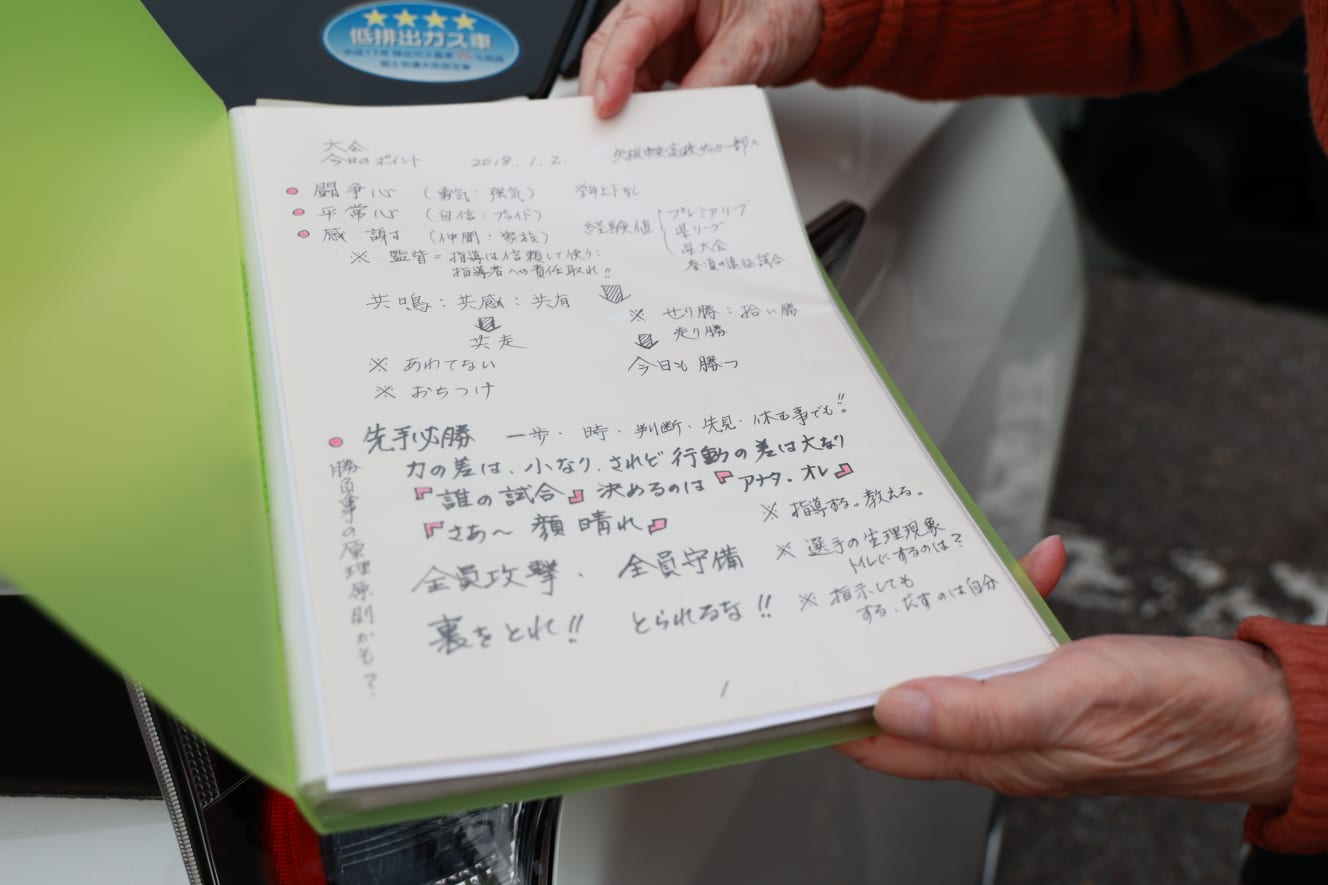Legendary Coach Sadao Furunuma Believes Moriyasu Japan Can Reach the World Cup Quarterfinals

The National High School Soccer Championship, which determines Japan’s top high school soccer team, takes place annually between the end of the year and the beginning of the new year. This year, in its 103rd edition, the spotlight was on Teikyo High School (Tokyo), which made its 35th appearance in the tournament after 15 years.
The legendary former Teikyo High School coach, Sadao Furuhara (85), who led the team to six championship victories, tying the post-war record, was originally an athlete aiming to compete in the Hakone Ekiden marathon and had no experience in soccer. His remarkable journey of transforming the school into a powerhouse has already been shared in works.
“Sadao Furuhara, Former Teikyo High School Soccer Coach: ‘The Reason a Team Becomes Number One'”
This time, the focus shifts to the impressive performance of Japan’s national team, led by Hajime Moriyasu, who secured a spot for the 2026 North and Central American World Cup—the fastest qualification in history. We now look at how the legendary coach Furuhara views the current team’s success.
Why soccer powerhouse Brazil can’t win the title
“What’s great about the current Japan team is that, led by players like Junya Ito (32, Stade de Reims) and Kaoru Mitoma (27, Brighton), every player has speed and can utilize it effectively in both attack and defense. From forwards to defenders, there isn’t a single player who’s a little lacking in athletic ability but great with the ball.
For example, Takefusa Kubo (23, Real Sociedad) is small and doesn’t have great speed, but he competes well in aerial duels and has excellent vision. In the past, players like him, who were small and technically gifted, were often seen as leaving the defense to others.
There was a time when being technically skilled alone could make you the best in the world, but now it’s an era of speed and precision. Brazil, a soccer powerhouse, hasn’t won a World Cup in over 20 years, but that’s not because Brazilian players have gotten worse. It’s because speed has become more important than technique. Of course, you need technique to make use of speed, but that goes without saying.”
In recent years, with the rising cost of broadcasting rights, away games in World Cup qualifiers are only available via paid streaming, and soccer has become a tool for making money. “It’s no longer something I can purely enjoy,” he added.
“Can the Japan national team finally reach the coveted quarter-finals? I think there’s a chance this time. But, whether I’ll still be around by then (the North and Central American World Cup starts in June 2026), that’s the question. For old folks like me, the World Cup should be held every year, not once every four years!” (laughs)

More than just a title
Furunuma achieved his first victory in the 53rd High School Football Championship in 1974, during his 10th year as head coach, and led Teikyo to six national championships and three Inter-High victories until his retirement in 2003, turning the school into one of Japan’s top football powerhouses.
After retiring from Teikyo, Furunuma contributed to a national title as a special coach at Ryutsu Keizai University Kashiwa (Chiba) in 2007. He also served as an advisor at various schools led by his former students, including Otsu (Kumamoto) and Teikyo Nagaoka (Niigata). Since 2008, he has continued advising Yaita Chuo (Tochigi), still involved in coaching at 85, and even joined the bench during this year’s High School Championship.
To his many former students, he says, “Even when you’re 50 or 60, I hope that soccer continues to enrich your life through communication.”
“Once you grow up, your relationships with friends tend to fade. I’d be happy if once a year, you gather with your high school teammates, seniors, and juniors, drink a little, reminisce, and keep those connections alive.”
Furunuma has spent about 60 years involved in high school soccer, and what were his days at Teikyo, where he spent around 40 years, like in his life?
“High school soccer coaches and teachers are, after all, employees. You sacrifice your family, think about soccer from morning to night, and even when you win the national championship, you don’t know how your work will be evaluated within the organization. I left Teikyo at 65, received a gratitude payment of 300,000 yen, but I don’t recall being given anything beyond that.
At the time I coached, Teikyo didn’t have the magnificent dormitories or grounds of other strong schools. If we had that kind of support, we might have won the national championship two or three more times. Many students even gave up on entering Teikyo because of the lack of proper dormitories.
Back then, the ground was narrow, but after classes finished at 3:30 PM, we could practice as long as we wanted. Now, there’s a great ground, but it takes an hour to get there, and practice is strictly two hours long. Well, I’m not sure which is more convenient.”
“My greatest joy may not be the many titles I won but being able to continue as a coach until this age.”
Once dominating high school football in his canary-yellow uniform, Furunuma’s legacy will continue to be passed down. And even as he moves to different locations, Furunuma remains committed to being an active coach, living in the present.
PHOTO: Kazuhiko Nakamura